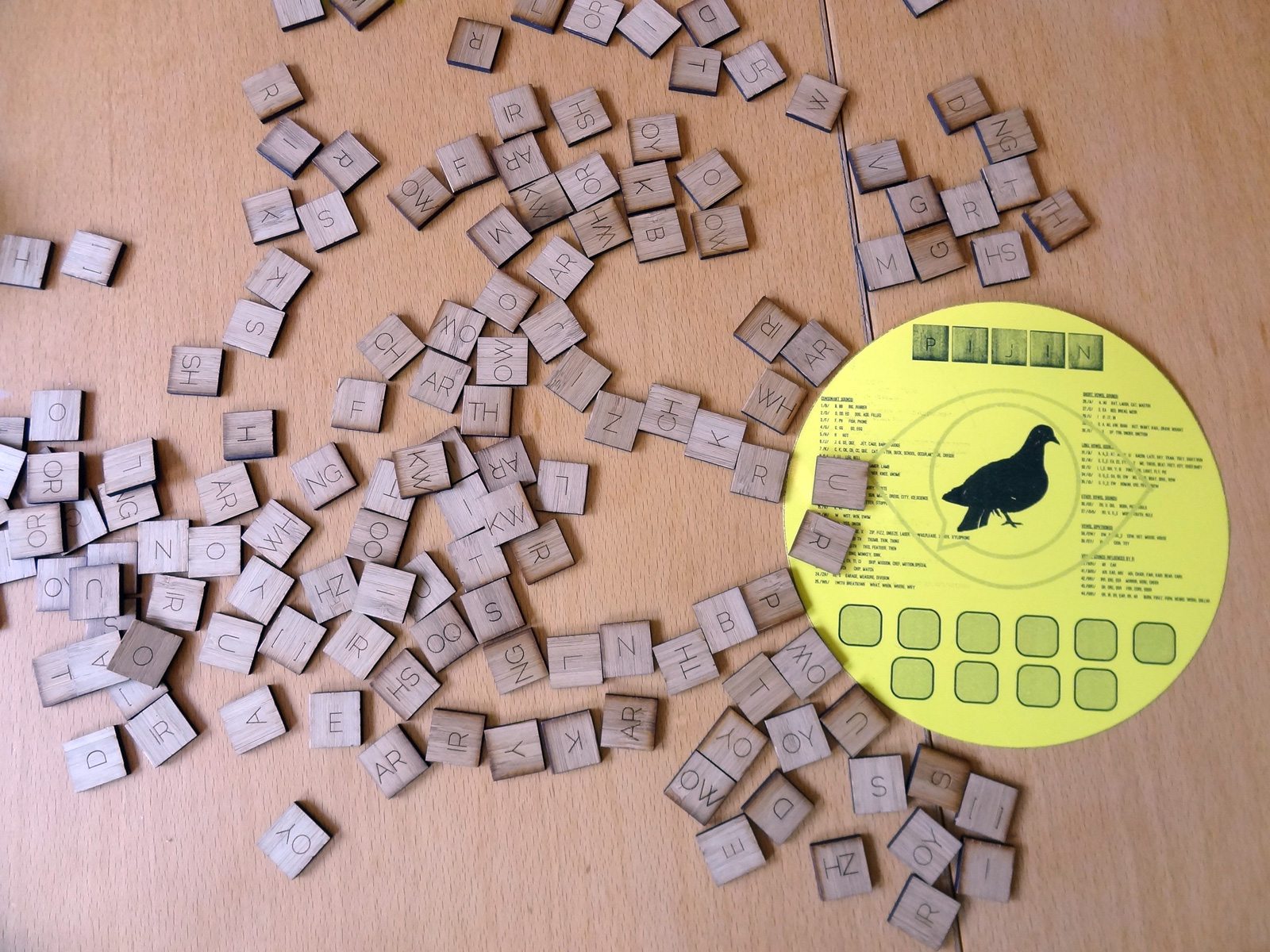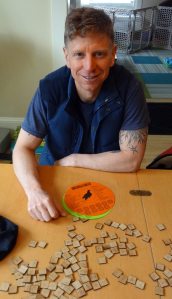
Do you love word games like Scrabble and Bananagrams? Here’s a Kickstarter project worth checking out: Pijin. As you might expect, the game consists of a bunch of tiles that you can use to spell words—but the twist is that the tiles are based on phonemes, and you spell words phonetically.

Pijin‘s designer, Travis Feldman, isn’t new to Kickstarter, but this is first foray into board games. His first project was the Molecule Synth, a little electronic musical instrument that I’d seen on display several times here in Portland, and he also the Battery Powered Orchestra Workshop last fall. I invited Feldman over to show me how Pijin works and what it’s about.
The game will come with 144 double-sided tiles: each tile has different phonemes on the two sides, and each two-phoneme combination is unique. There are also player mats which list the 37 phonemes and some examples of words that use them, plus a deck of action cards. The action cards are for a variant on the game in which you try to make words relating to the word or image on the card as quickly as you can.
Feldman picked the phonemes that are used in English and are also common to many Indo-European languages. He tried using the International Phonetic Alphabet, which is extremely accurate for recording exactly what a word sounds like, but then realized that very few people would be able to play a game with those tiles without a lot of learning ahead of time. Instead, he settled for the modern English (or Latin) alphabet and spelled out various dipthongs and phonemes—with the understanding that some can be read in multiple ways. Vowels can be short or long, for instance, and the “OW” tile could spell words like “house” or “rose.”
The basic game is like playing Scrabble without a board: each person gets ten tiles, and you try to spell words on a grid, scoring a point for each tile used. However, in this case everything is spelled out the way it sounds. This can lead to interesting conversations, as you listen to how you and others actually pronounce words. Playing the game reminded me at times of taking the Dialect Quiz: “wait, do I say Flore-i-da, Flaw-ri-da, or Flah-ri-da?” It’s not strictly a word game, but also a social experience—the reason he likens it to Apples to Apples is that there’s that element of back-and-forth where the players are making judgments about the accuracy of a word, rather than just pulling up a word list or consulting a dictionary.

When I first saw the game I didn’t really pay much attention to it. I was a spelling bee kid and I’m a stickler for proper spelling, despite my grudging acknowledgment that spelling may not be as important as I once believed. However, I’m also interested in linguistics, and Pijin seems perfect for exploring language and sounds while playing a game. Feldman remarked that kids can play it along with adults and can even come up with words more easily because they’re thinking phonetically anyway.
Although Pijin may not seem like it adds new mechanics to the word-tile genre, the switch to phonetic spelling does open up a host of possibilities, including spelling non-English words and playing with particular dialects. Can you imagine playing this with a group of people that all have different accents? That’d be a blast.
For more information, check out the Pijin Kickstarter page.



